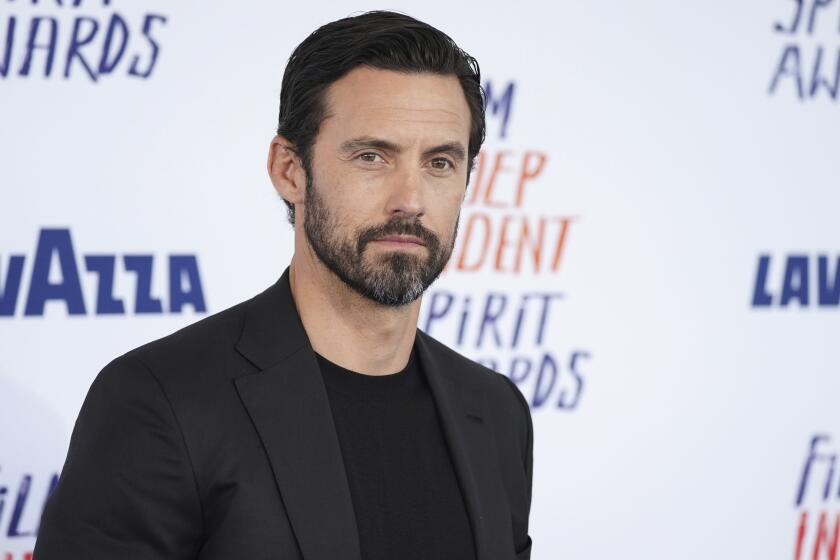Groups Voice Concern Over Funding for Latino Programming
- Share via
Nearly a year after the Corp. for Public Broadcasting cut off $1 million in funding to the main developer of Latino-oriented programming for public television, a contentious debate has erupted over the future of such projects. The rancor has managed to unite at least two competing groups of producers against the tax-funded CPB, the nation’s largest single source of support for content development and production on public television.
On one side, independent producers are insisting on more control over developing the creative programs they’ll be asked to carry out. “The debate is over who’s going to lead this process forward and who’s going to be setting the agenda for whatever organization leads,” says one.
Implicit in that position is the belief that the CPB wants control. Not so, says a corporation official.
“Some of the acrimony that has developed [came] out of some notion that CPB wants to control all of this,” said Charles Fancher, vice president of communications for CPB. “The happiest situation for us is one in which we give money [out] . . . and they go off and do their thing.”
The flash point for the conflict was the CPB’s decision last March to end funding for the Los Angeles-based National Latino Communications Center--one of five minority consortiums working under the auspices of the CPB to develop culturally diverse programming--and replace it, on an interim basis, with the Latino Public Broadcasting Project.
The move was made in the wake of an audit of the NLCC that turned up several financial discrepancies. And while producers are bitterly divided over the NLCC’s performance, they have joined to protest the fact that, in November, a replacement group was quietly appointed without any input from filmmakers. So while the CPB has arranged for six forums in five cities to explain its position and to solicit feedback from Latino filmmakers, the producers have responded with a call for a two-day national conference of their own this spring where they will set the agenda.
“It will be an agenda defined by Latinos rather than for Latinos,” declares a letter announcing the conference.
Stuck in the middle is actor and activist Edward James Olmos, who, as head of the Latino Public Broadcasting Project, is seen by some producers as siding with the CPB. But in joining the call for a national conference and offering to help fund it, he is undoubtedly making many CPB executives uncomfortable as well.
“This is much too important for us not to unite,” Olmos told about 100 filmmakers at an emotionally charged CPB forum in Los Angeles recently.
The formation of the Latino Public Broadcasting Project and Olmos’ appointment as its head were intended to get funds flowing back to producers after more than a year of wrangling. The money at stake is small--$1.3 million, which represents two years’ worth of undistributed CPB grants but only about 0.5% of the nonprofit corporation’s annual budget. (“A lot of productions spend more than that on catering,” one producer pointed out.) However, the cachet of public television is important--among the projects the CPB has funded was 1996’s critically acclaimed “Chicano! History of the Mexican American Civil Rights Movement.”
The CPB suspended operations with the NLCC after a former employee accused the 24-year-old center of improper management and inappropriate expenditures. An audit, conducted by the CPB’s inspector general, led to a grand jury indictment being filed against Roy L. Casares, the NLCC’s former business manager. In November, Casares pleaded guilty to six counts of fraud, which occurred between January and November 1995.
The investigation forced the group to stop work on its public-television projects, depriving many producers of funds that had been promised. The NLCC has since reorganized (the group’s longtime executive director, Jose Luis Ruiz, has departed), and board Chairman Jay Rodriguez says the center would like to reclaim a leadership role involving Latino television production.
In the meantime, the CPB says it will continue to reach out to producers, gathering information it hopes will help it select a permanent replacement for Olmos and his organization. Open forums were held in San Francisco, Los Angeles and San Antonio over the past 2 1/2 weeks, and others will be staged in Miami and New York next month.
“We were really hopeful that these forums would sort of serve the purpose of having people tell us what they were looking for in a long-term solution,” said Miriam A. Crawford, a CPB director of community relations who has represented the federal agency at the forums. “What we would really like to focus on is what folks are looking for for the future. We’d like to get more input.
“[But] I think people have also needed an opportunity to be able to speak their mind about what happened in the past. I understand there’s some healing that needs to be done.”
Yet despite the obvious acrimony, both sides expect the current debate will ultimately prove beneficial.
“I think what has come out of this problem is that everybody is talking to everybody else,” says the NLCC’s Rodriguez. “And out of it will come a structure to serve everybody’s needs.”
More to Read
The biggest entertainment stories
Get our big stories about Hollywood, film, television, music, arts, culture and more right in your inbox as soon as they publish.
You may occasionally receive promotional content from the Los Angeles Times.











